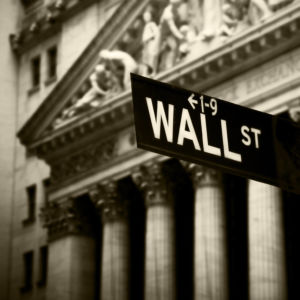House Republicans held a hearing Wednesday to discuss a bill that would rollback financial regulations enacted in response to the last recession.
The Dodd-Frank Wall Street Reform Act was passed in 2010 and was the primary regulatory response to the financial crisis of 2008. Critics have contested the reforms imposed unnecessary burdens. The Financial CHOICE Act was introduced to rollback those regulations in a number of ways.
The House Financial Services Committee held the hearing to discuss the proposed bill. The measure targets specific regulations as opposed to repealing Dodd-Frank outright. It’s designed to end bailouts, reduce financial restrictions, and restructure certain federal agencies.
“Dodd-Frank failed to adequately address the causes of the crisis, imposed unnecessarily high compliance burdens on firms, worsened the too big to fail problem, and contributed to the unusually sluggish recovery,” Heritage Foundation senior research fellow Dr. Norbert Michel testified. “It extended command control type regulation well beyond the banking sector even though this approach has repeatedly failed to keep the banking system sound.”
President Barack Obama responded to the financial crisis by enacting the regulations early in his presidency. Those opposed argue these policies have stifled economic growth. Supporters claim the reforms were necessary for stopping abuse in the financial sector.
“While those American families have not forgotten the pain of the financial crisis, a kind of collective amnesia appears to be descending on Washington,” University of Michigan Law School Prof. Michael Barr testified. “Many seem to have forgotten the causes of the financial crisis, and the brutal consequences for American families.”
The financial crisis started in the subprime mortgage market before becoming a global economic disaster. The whole thing turned into an international banking crisis with the collapse of the investment bank Lehman Brothers in September 2008. Everything accumulated into what is now known as the Great Recession.
“Instead of offering hope and opportunity to American families, the legislation being considered by this committee would needlessly expose taxpayers, workers, businesses, and the American economy to fresh risks of financial abuse and financial collapse,” Barr said.
President Donald Trump has focused his agenda on helping domestic workers. He hopes to promote economic growth while also protecting workers from unfair foreign competition. Critics have contested his ideas are actually overly protectionist and could hurt the very workers he claims to help.
“Those who still back Dodd-Frank will of course argue that it is necessary to prevent another financial crisis, but this is based on the false idea that the 2008 crisis was the result of insufficient regulation of the financial system,” American Enterprise Institute scholar Peter Wallison testified. “They have no explanation for why we had a nationwide decline in underwriting standards, an unprecedented housing price bubble, and a financial crisis when the bubble collapsed in 2008.”
The economy still faces a number of lingering issues from the recession. There are still many people outside the labor force despite recent gains in employment and economic growth has been sluggish up until just recently.
The economy has steadily added jobs over the last few years and now is close to full employment. The employment rate, however, doesn’t factor in those that have dropped out of the workforce, which the participation rate does. The Gross Domestic Product (GDP) last year jumped to 3.5 percent after being stuck around one percent.
The Congressional Budget Office (CBO) found in its budget outlook report that workers face slow wage and labor market growth over the next couple of decades. The participation rate is also expected to fall even further over that time. The outlook is based on current laws and could change as lawmakers seek reforms.

